
VOL. 10 NO. 1 THE MAGAZINE OF THE UNIVERSITY OF UTAH SUMMER 2000
Warming Up for Summer
Six alumni share tips for getting the most from the season
If your best-laid plans for a summer full of activity and rejuvenation often go awry, despair no more. Continuum asked experts—alumni, of course—in six summer-related fields to give us tips and thoughts on making the most of the months ahead. Want to simply relax? Or find an out-of-the-way vacation spot? Read on—their enthusiasm is bound to inspire you, no matter what your plans may be.
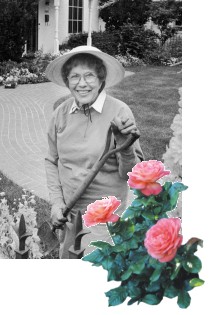 GARDENING
GARDENING
I like to think that a garden is like life: something is always doing
well, something is struggling, something is being born anew, and something
is dying. And as with other things in our lives, the major challenge in
establishing a garden is finding the place where a plant will grow happiest.
For that reason, I often plant the same plant in several places in my
garden. It is not enough to know whether a plant is sun-loving or shade-loving,
because there are so many other conditions that a plant must deal with
in order to thrive. You have dry shade and moist shade; you have high
shade and dense shade. And then sometimes a plant will self-sow and find
a place for itself that is very beautiful. Some of my most successful
seasons have been happy accidents.
If you are starting a garden, the main thing is preparing your soil. I once read that if you have a dollar to spend on the garden, spend 90 cents on the soil and 10 cents on plants. In Utah, we have alkali soil, but we try very hard to put in plants that like acid soil, which entails continually adding to the soil. The second thing to do as you begin gardening is to find where your sunlight and your shade will be. Plan the skeleton of the garden. Consider where you will put your shrubs and trees. Make your own choices, choose your own flowers, and do it for you. Whatever you think is beautiful is what you put in your garden. I like to look out the window and plan what I want to see.
Finally, you need to establish your sources. Your source of plants can't be just commercial, because you have to be comfortable asking questions before bringing things home to your garden. Find good source books, as well. I call The Undaunted Garden, by Laurel Springer, my "garden bible," because it's written for a climate very much like ours.
When I began my garden, I wanted to make a place where my home and I could both be happy. Now, when I look at pictures of this house 50 years ago, I'm reminded of a slogan on a men's clothing shop when I was attending the U: "If you don't think clothes make a difference, try walking down the street without them." And to me, a house without a garden is in the same condition—it's exposed.
—Edith Reed BA'38 currently teaches piano lessons in her home in addition to caring for her garden, which was featured on the Utah Museum of Fine Art's 1995 "The Art of the Gardener" tour.
ENJOYING THE OUTDOORS
The success of an outdoor adventure often depends on planning.
I have dashed out the door on a Friday afternoon only to discover when
I set up camp that my sleeping bag was back home. My advice, when I follow
it, is to think about your excursion and make time to prepare. Beginners
and experienced outdoor people make the same mistakes—anything from
carrying too little and not having enough equipment for wet weather, to
carrying too much and trudging under the burden of a heavy backpack. Friends,
educators, books, magazines, and outdoor shops can all help you plan the
necessities for your adventure.
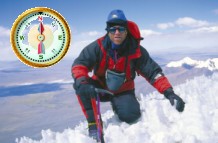
Whether you're a simple hiker who only needs good footwear, a jacket, and a bottle of water, or you're the hiker who carries the 10 essentials plus the map, compass, altimeter, and GPS unit, the most essential element of a good trip is a good attitude. So much of our daily life is spent between the same places, traveling at high speed in an automobile, that getting out and exploring our environment gives us the chance to slow down and enjoy our surroundings. So don't ever pass up the chance to go out and play. And in order to make the outdoors enjoyable for everyone, ask yourself, "What impacts do my activities have on the environment and how do they affect the other people around me?" One of the biggest problems I see these days is fire building. The proper method is not to have a fire. Backpacking stoves are more efficient at cooking, and clothing is now more efficient at keeping you warm and dry. Moreover, dead wood is necessary for insect homes and soil formation.
For those looking for a place to start, the Mount Olympus trail and the West Ridge of Grandeur Peak are a couple of hikes that can be tailored for year-round hiking and conditioning. If you like glades with aspens and meadows, Bear Trap, Willow Heights, and Broads Fork to Twin Peaks are all hikes with these scenic features. And Canyonlands National Park is a great place to begin exploring the desert. For lesser-known hikes, I suggest a guidebook—I don't want to give away all of my secrets.
—Dan Smith BS'85 teaches for the Parks, Recreation, and Tourism Program at the U, in addition to working for the Department of Natural Resources. He is currently on a Mount Everest expedition. For more details, and to follow his progress, go to www.everestcleanup.com.
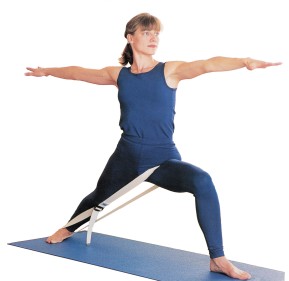 RELAXING
RELAXING
Relaxing always begins with the breath. Focus on turning inward, which
is usually very calming. Tune out that outside world—all of the chaos—and
become aware of your breathing. What I find to be most relaxing is focusing
on the exhale, lengthening and deepening and slowing down the exhale.
You can do this at any time, even when you're driving down the street.
This doesn't mean that you shouldn't be inhaling—that's a given.
But what happens when you get to the bottom of a controlled exhale is
that you naturally come up with a deeper inhale. Try it. It's just going
to be more relaxing and more rejuvenating.
Another way to relax is any kind of a supported forward stretch. If you find yourself at a desk, you can push your chair away from the desk, then rest your head on your folded arms on the desk. Ground your hips and you are getting a stretch through your spine, but you're also relaxing into it, so you're getting a stretch through the shoulders. It's really a simple way to relax and regroup in the office, or anywhere for that matter.
The more I practice yoga, the more I want to share it with others. There are physical benefits, like muscle tone and better breathing, but it's all about balance—mental, physical, and spiritual balance. I find that I am calmer, I am more relaxed in situations, and I can think a little more clearly; the mental chaos has a little more order to it. For those interested in starting yoga, it's a good idea to find a good instructor. Shop around and try different instructors, because everyone has his or her own style. I would compare learning yoga to learning to ski. You wouldn't watch a video or read a book about skiing and think that you can ski. You would want a real lesson up on the mountain. You would want someone to talk you through it a few times. Yoga is the same way. There are plenty of good videos and books, but as a beginner, you need someone who has more experience to talk you through the exercises and introduce you to the discipline. I think one of the greatest things about yoga is it is not something that you can ever master. I still go to classes. I'm still learning. It's not about arriving, it's not about competition, it's about learning the process.
—Marlénè Lambert BA'88 BUS'89 teaches yoga at The Yoga Center and at the University.
READING
I have a philosophy that really devout readers understand people, because
reading a good novel is like living another life. It is a way to escape
into a world that you never knew existed, because good fiction is as real
as nonfiction. Good writers express the truth about us and for us through
the magic of beautiful language. Good writers take off the mask and allow
us to understand their innermost hearts.
If you're looking for reading material this summer, I suggest any one from this collection of books that opened a whole new world for me. They are plot driven, full of suspense, and great for discussion. I call them "literary page-turners." Enjoy!
|
Alias Grace Corelli's Mandolin Dandelion Wine East of Eden A Fine Balance I Know This Much is True The Killer Angels |
Ladder of Years or Saint Maybe The Love of a Good Woman and Open Secrets |
The Magician's Wife The Piano Man's Daughter The Shipping News and Close Range: Wyoming Stories The Stone Diaries To Kill a Mockingbird A Prayer for Owen Meany |
—Roz Sandack BS'73 is a reading group facilitator at The King's English Book Shop and sales manager for Origin Books.
VOLUNTEERING
Getting involved in your community is only a matter of picking up the
phone and calling a volunteer clearinghouse. There are volunteer centers
in Salt Lake and other locations around the state and country. These locations
keep a running list of community needs and can match volunteers to opportunities.
There is also a growing number of Web sites available to connect volunteers
to service opportunities. Don't procrastinate. Just do it.
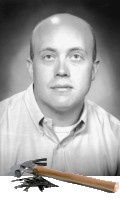 In
order to create an especially rewarding volunteer experience for yourself,
there are a few things that you should consider before you pick up that
phone (or mouse). First, you should understand where you are coming from.
Ask yourself, "What do I care about? What do I believe in?"
Maybe you are passionate about protecting the environment. Maybe you are
concerned about poverty. It is extremely important that you choose an
area about which you are motivated—it will help you to feel like
you are making a difference.
In
order to create an especially rewarding volunteer experience for yourself,
there are a few things that you should consider before you pick up that
phone (or mouse). First, you should understand where you are coming from.
Ask yourself, "What do I care about? What do I believe in?"
Maybe you are passionate about protecting the environment. Maybe you are
concerned about poverty. It is extremely important that you choose an
area about which you are motivated—it will help you to feel like
you are making a difference.
Next, you should consider what you have to contribute. Do you have any unique abilities or experiences that could benefit a nonprofit organization? Maybe you have experience with business or fund-raising or even working with some segment of the community. By offering specialized skills, you not only help the organization, you also help yourself to create a worthwhile experience.
Like many U students, I participated in an internship in Washington, D.C., with the Hinckley Institute of Politics. One evening, as I was leaving an inauguration party for President George Bush, I noticed how we were all stepping over a group of people huddled on a heating grate in order to keep from freezing. That moment changed my life. When I came back to the U, I began to work for advocacy groups. The Bennion Center at the U did a great job of structuring learning experiences so that students thought beyond the immediate service and began to consider what in our community created the problem. Over the years, I have seen how individuals and groups can make a huge difference in their communities when they commit to a goal. In fact, anyone can make a difference simply by walking out of his or her front door, seeing what needs to be done, and saying, "I'm going to do something about this." People within a community can create amazing responses to difficult problems. It's all a matter of integrating private lives with community needs.
—Bill Crim BA'91 is executive director of Utah Issues, a private nonprofit organization committed to alleviating poverty.
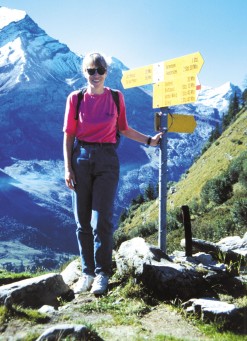 VACATIONING
VACATIONING
Researching your destination is probably the biggest key to a fantastic
vacation. Your greatest resource is a travel agent who has been to your
destination and knows the lay of the land. In addition, every state and
city in the U.S. has a tourist office that will send free information
to help you plan your trip; even foreign destinations have tourist offices
in New York or Los Angeles. In searching for information, use the Internet
with caution. Although it can be a great research tool, it's not perfect
yet.
If you'd like to make your vacation more personal, consider planning around a special event. You could try the Sacramento Jazz Festival in the spring or the Sundance Jazz Festival in the fall. Taos, New Mexico, has a wonderful art festival. For food lovers, California is the capital of flavorful food festivals. The Gilroy Garlic Festival is my pick. For a directory of visual art events, museum openings, concerts, plays, and theatre events, try the resource at www.culturefinder.com.
Another way to personalize your trip is an adventure or learning vacation. This new trend in vacationing involves anything from doing something innovative to taking classes. Consider scuba diving lessons in Cancun or cooking classes in Paris or renting a car in Europe and following the open road.
Because most vacationers are concerned about their budget, I suggest having your antenna up year-round for great deals. Check the newspaper for specials or news of airfare wars. In order to take advantage of some deals, you have to be flexible, which isn't always an option. But sometimes, just changing the day you travel can make a big difference. Of course, the best way to get a deal is simply to shop around.
And don't ever pass up the opportunity to see new places. Some of my best vacationing memories are moments in time that couldn't have been planned, like driving around the winding country roads of Majorca off the coast of Spain and smelling the aroma of orange blossoms, or sitting on horseback on the summit of the Absaroka mountain range, overlooking Yellowstone National Park, or falling in love with Venice from the deck of the Grande Princess.
—Kathryn Clayton BA'73 MA'76 is travel editor for the Deseret News.
Interviews compiled by Continuum editorial intern Kathyrn Austin BA'0
Copyright 2000 by The University of Utah Alumni Association
